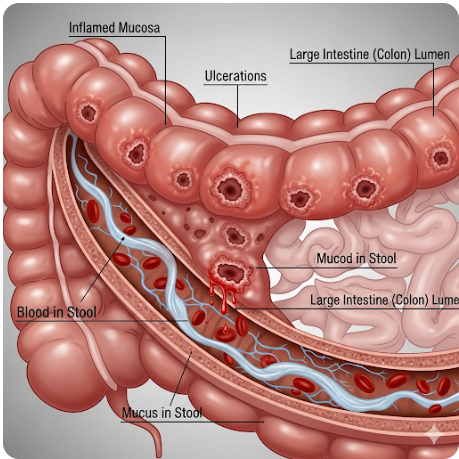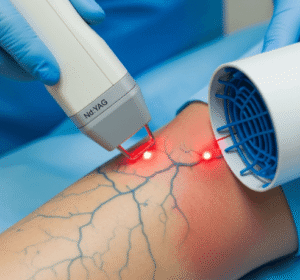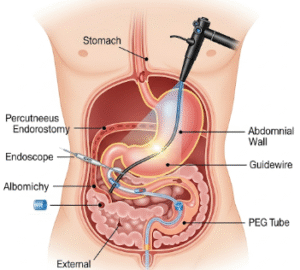Overview
Dysentery is an infectious disease that causes severe diarrhea with blood and mucus, typically resulting from bacterial or amoebic infections. In South Korea, improved sanitation has reduced its prevalence, but cases still occur, particularly among travelers and in outbreak situations. Prompt diagnosis and treatment are crucial to prevent complications such as dehydration.
What is Dysentery?
Dysentery is characterized by inflammation of the intestines, primarily the colon, leading to frequent, painful bowel movements with blood or mucus. The two main types are:
- Bacterial dysentery: Usually caused by Shigella species
- Amoebic dysentery: Caused by Entamoeba histolytica
Symptoms
Common symptoms include:
- Frequent, watery, or bloody diarrhea
- Abdominal pain and cramps
- Fever and chills
- Nausea and vomiting
- Fatigue and weakness
- Dehydration in severe cases
Causes
Dysentery is caused by infections through contaminated food, water, or direct contact:
- Ingestion of Shigella bacteria (shigellosis)
- Infection by Entamoeba histolytica (amoebiasis)
- Poor hygiene and sanitation practices
Risk Factors
Risk factors include:
- Travel to areas with poor sanitation
- Consuming untreated water or contaminated food
- Close contact with infected individuals
- Weakened immune system
- Poor hand hygiene
Complications
Untreated dysentery may lead to:
- Severe dehydration and electrolyte imbalance
- Malnutrition
- Blood infections (sepsis) in rare cases
- Liver abscess (for amoebic dysentery)
Prevention
Preventive measures focus on hygiene and safe food practices:
- Drinking safe, treated water
- Washing hands regularly
- Avoiding raw or undercooked foods in high-risk areas
- Maintaining proper sanitation and food hygiene
Treatment Options in Korea
In South Korea, dysentery is managed with effective medical care:
Medical Treatment:
- Antibiotics for bacterial dysentery (e.g., ciprofloxacin, azithromycin)
- Anti-parasitic medications for amoebic dysentery (e.g., metronidazole, tinidazole)
- Oral rehydration solutions or intravenous fluids for severe dehydration
Supportive Care:
- Adequate rest and fluid intake
- Dietary modifications to ease digestive stress
- Monitoring for complications, especially in children and the elderly
Specialized Care:
- Gastroenterology departments in Korean hospitals provide stool testing, culture analysis, and imaging if necessary
- Public health interventions include outbreak monitoring and preventive education
With timely medical attention and proper hygiene practices in Korea, dysentery can be effectively treated, reducing the risk of severe illness and complications.













